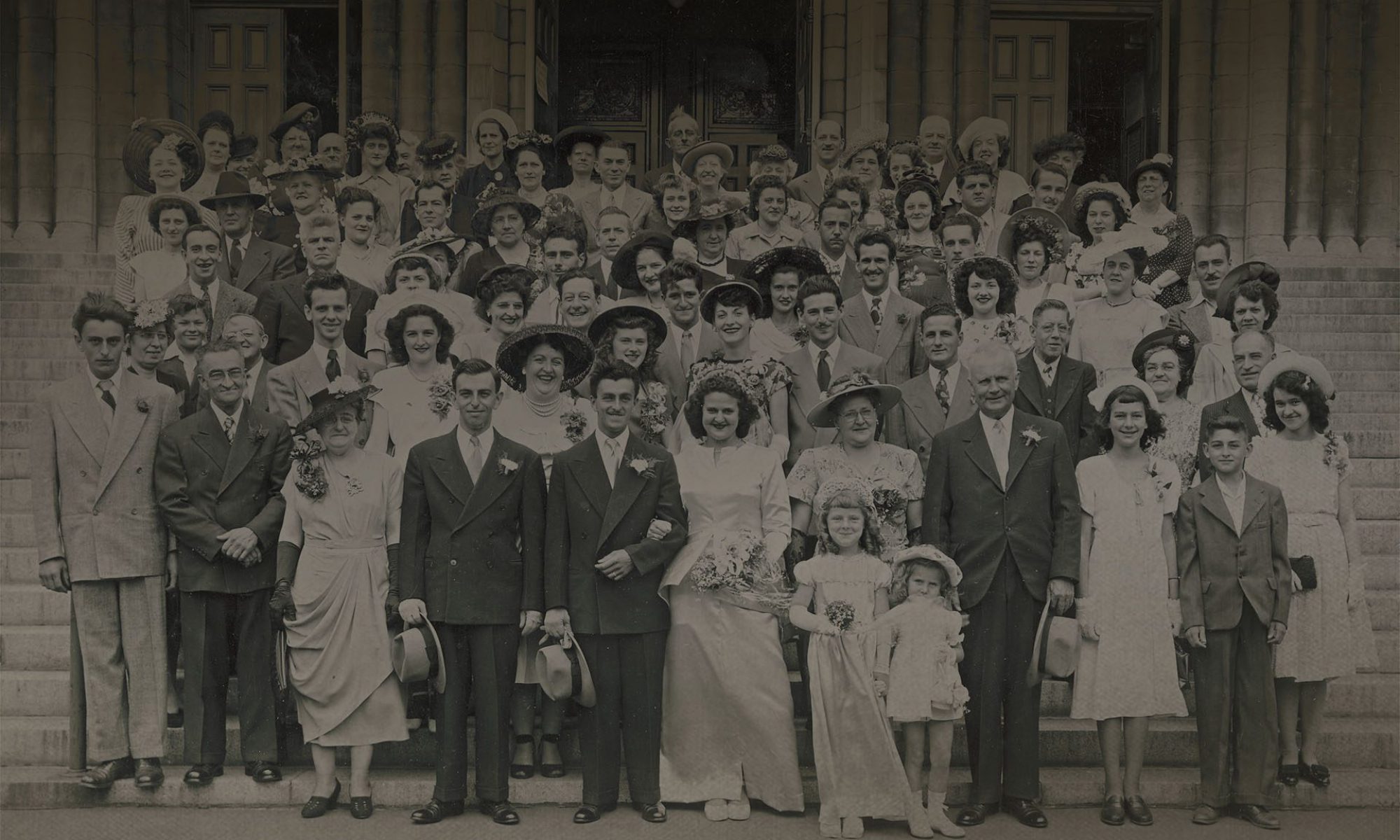This post is also available in: Français

Let’s face it: DNA testing has redefined genealogy!
For more than two decades, DNA tests have demonstrated their importance in the realm of family history and genealogy. From FamilyTreeDNA (2000), a pioneer in the field, to subsequent companies such as 23andMe (2006), AncestryDNA (2012) and MyHeritage (2016), over 40 million DNA test kits have been sold to date. But are all these tests equivalent and interchangeable?
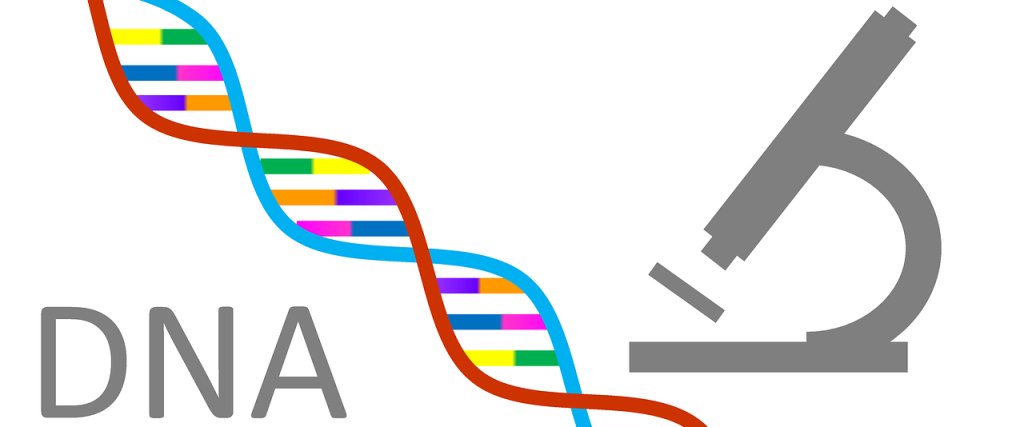
In this article, we’ll answer that question and explore in more detail the different types of DNA tests available on the market.
Types of DNA tests available on the market
There are two types of commercial DNA tests on the market: those for Autosomal DNA, and those for “deep” DNA (Y-DNA and mtDNA).
Autosomal DNA
Autosomal DNA reaches up to 7 generations, accounting for 128 potential ancestors. However, with each successive generation, some of this ancestral DNA is inevitably lost. Therefore, starting from the 8th generation onward, the last traces of certain ancestors are completely lost, making it impossible to establish a genetic connection with them.
Tests in this category (autosomal) account for the largest share of the genetic genealogy market. This category includes FamilyTreeDNA‘s “FamilyFinder” test, as well as all DNA tests from 23andMe, Ancestry and MyHeritage. These DNA tests focus on close relatives, recognizing degrees of relationship with great precision.
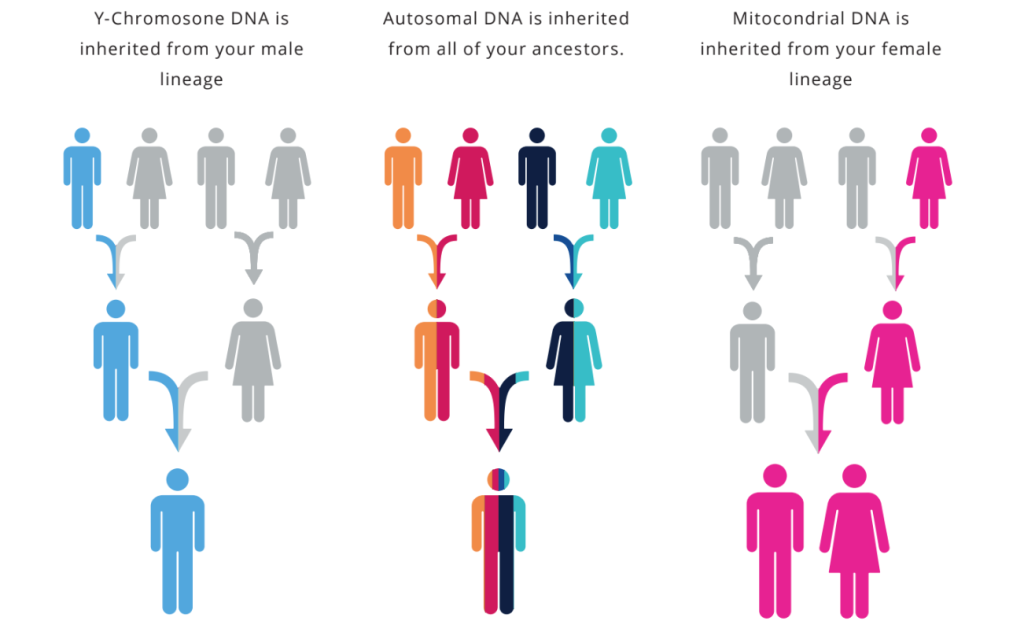
Y-DNA and mtDNA (Deep DNA)
Y-DNA and mtDNA is DNA which is transmitted only through the father’s and mother’s lineages; Y-chromosome DNA transmitted from father to son, and mitochondrial DNA transmitted by the mother.
It is with this DNA that we are able to identify the pioneers of New France.
For example, all male descendants of the patriarch Jean Côté should, in principle, carry the same DNA – that of the Y chromosome passed down from father to son. This deep DNA identifies lineages, not individuals, unlike autosome tests. A man bearing the name Côté can therefore verify, with the help of FamilyTreeDNA‘s Y-37 test, that he does indeed possess the ancestral DNA signature of the Côté family patriarch, Jean Côté. Among the major DNA testing companies, only FamilyTreeDNA offers specific Y chromosome analyses.
Female pioneers are not to be outdone, as matrilineages also carry DNA signatures that go back centuries. FamilyTreeDNA‘s mtFullSequence test (also known as FMS) analyzes the DNA signature transmitted from mother to children via mitochondria. If your matrilineal matriarch is, for example, Marie Rollet, the courageous wife of Louis Hébert, you should carry her genetic signature, and the mtFullSequence test can confirm this. Your test results will take you back to the origins of New France.
Deep DNA, Autosomal DNA, or both?
Autosome tests such as those offered by 23andMe, MyHeritage and Ancestry serve many purposes, whether it’s to verify close relatives, reveal unsuspected filiations, or enable adoptees to trace their parentage.
However, these objectives are not the same as those of genealogy enthusiasts interested in older times. Deep DNA reaches the patriarchs and matriarchs of the first generations who founded the country and from whom our surnames originate. The DNA signatures of New France’s ancestors live on through the lineages that link us to them: deep DNA testing aims to discover the heritage they passed on to us.
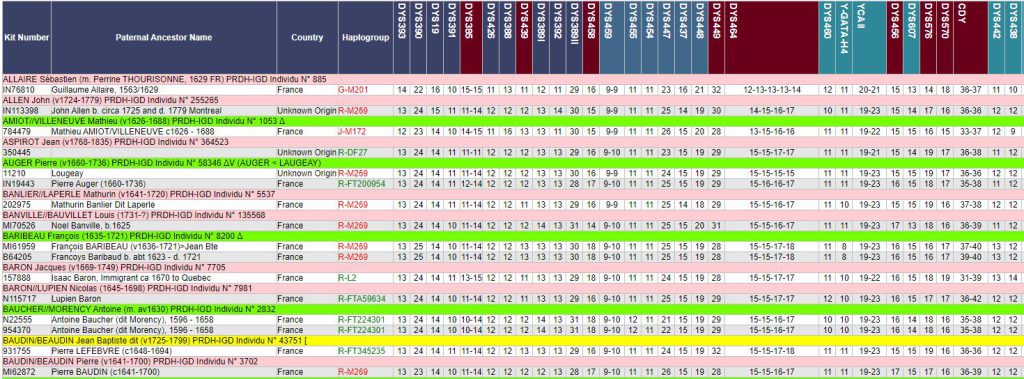
Among the major companies, only the tests offered by FamilyTreeDNA lead to the discovery of historical DNA signatures invaluable to the study of early Canada. If you’re interested in the origins of New France, and in confirming your genealogical research over several generations, Y-DNA and mtDNA tests are the ones to go for.
The right DNA test for YOU!
Autosome tests are very accurate for determining relationships spanning several generations. They are not, however, accurate for ethnic percentages, which are not genealogical in nature. As accurate as the kinship calculations of autosome tests are, their ethnic estimates are uncertain. These two aspects of the results must be contrasted. These tests are therefore very different from deep DNA patrilineage and matrilineage tests, which aim to identify distant ancestors.
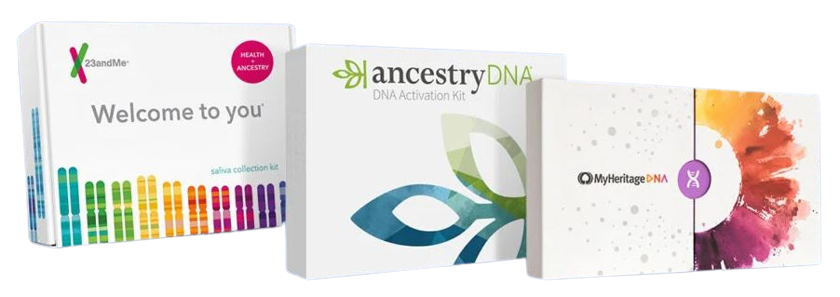
Patrilineage and matrilineage deep DNA tests enable individuals to discover or verify that they are descended from one genetic lineage and not another. In genealogy, these tests are often used to establish, beyond any doubt, the validity of documentary research, and thus confirm that the individual tested is indeed descended from the lineages identified by the archives.
What’s more, the genetic identity of the test subject cannot be deduced from the results, only the origin of his or her lineage. As a result, privacy can be protected, and the use of a pseudonym is commonplace. Those who wish to remain anonymous can limit themselves to deep DNA testing.
Getting your DNA test
Deep DNA (Y-DNA and mtDNA)
If you’d like to learn more about your origins and confirm your parentage to a pioneer.
- FamilyTreeDNA Y-DNA tests (We recommend starting with the Y-37 test)
- FamilyTreeDNA mtDNA test
With the help of our team, you can verify that your DNA signature matches that of the ancestors at the origins of your lineage. This match provides scientific proof of your documentary research and genetic assurance that you are indeed descended from the ancestor in question. To find out more, visit our DNA section!
Autosomal DNA
If you’re more interested in discovering close relatives, from more recent times, FamilyTreeDNA‘s FamilyFinder test and tests from Ancestry, Myheritage and 23andMe will put you in touch with hundreds of people who share DNA segments inherited from common ancestors.
If you have any questions about DNA and its use in genealogy, don’t hesitate to contact the Genealogy Quebec DNA project team at adn@institutdrouin.com.
What’s more, if you already have DNA results from Ancestry, 23andMe or MyHeritage, you can transfer them free of charge to FamilyTreeDNA and combine them with deep DNA tests, which will be consolidated in a single account. You’ll then be able to attach all your results to the Genealogy Quebec DNA project, where our team will be happy to answer any questions you may have about your DNA.
